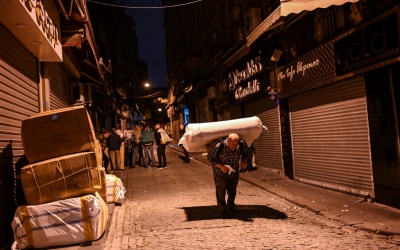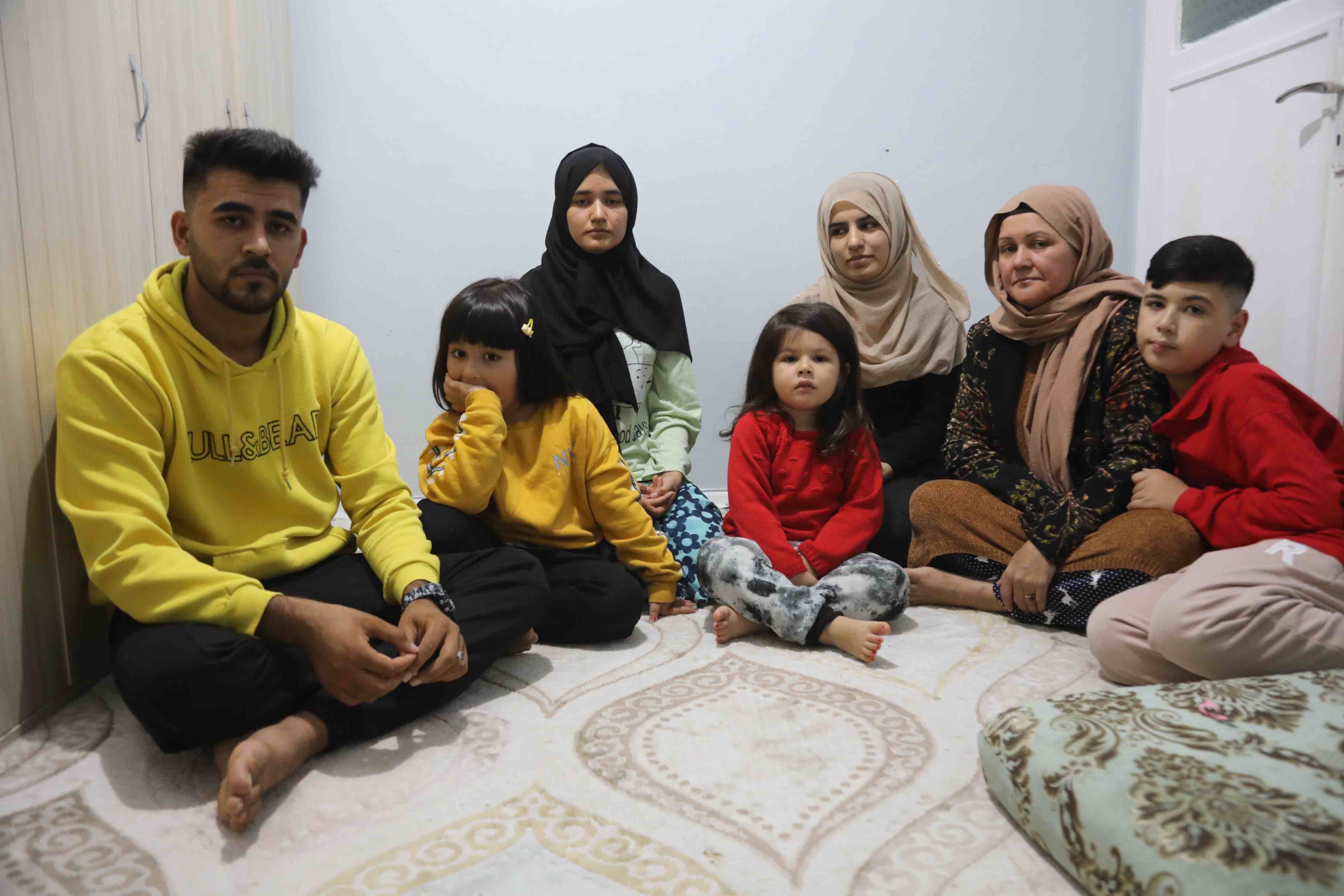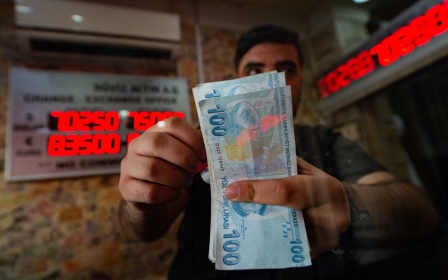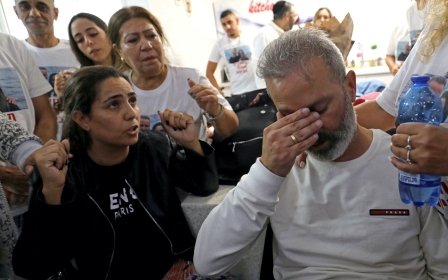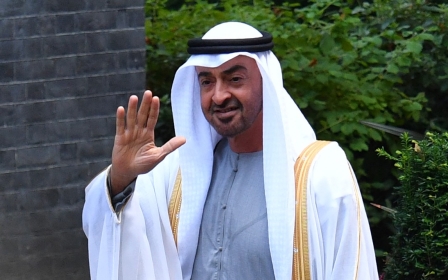Turkey: Opposition prey on refugees amid economic crisis
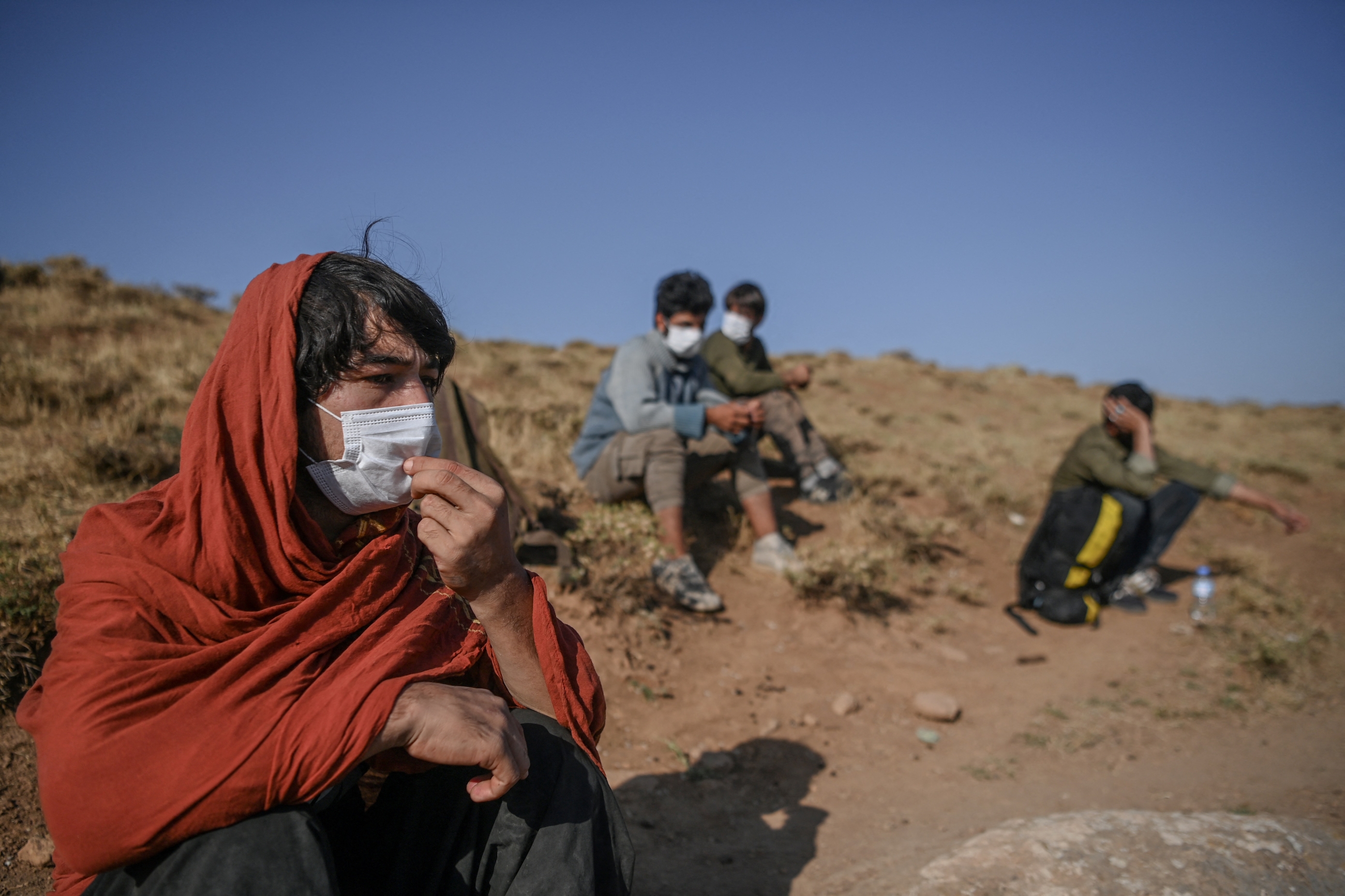
When Ajmal Walizada visited a park in Istanbul's Zeytinburnu neighbourhood last month, instead of spending a relaxing afternoon with his loved ones, the 24-year-old Afghan was harassed until he and his family decided they had to leave.
"A group of Turkish men came over to us and said: 'Go back to your country, you have made it dirty here,'" recalls Walizada, who lives nearby in an apartment shared by two families. "In the streets, they call us foreigners and give us dirty looks. It's very tough. One Afghan was even beaten by Turks in that park recently."
New MEE newsletter: Jerusalem Dispatch
Sign up to get the latest insights and analysis on Israel-Palestine, alongside Turkey Unpacked and other MEE newsletters
Walizada, who arrived in Istanbul during the summer after fleeing the resurgent Taliban in Kabul, is the latest in a long line of refugees to come to Turkey. But while for many years the country of 84 million - which hosts the largest number of refugees in the world, around four million - has had an "open-door" policy towards asylum seekers, resentment towards refugees is growing amid political and economic turmoil.
In recent months, opposition leaders in Turkey have increasingly weaponised the subject of refugees, vowing to prevent neighbourhoods from being "taken over" by Syrians, and pledging to send refugees back to their countries of origin. Walizada's troubles, he believes, are down to the ramping up of xenophobic political pressure.
In July, Kemal Kılıcdaroglu, chairperson of the main opposition Republican People's Party (CHP), said that if elected, Turkey "will say our goodbyes to our Syrian guests and will send them to their homes in two years".
The CHP's deputy chairperson, Engin Ozkoc, similarly stated that "Syrian and Afghan refugees are Turkey's number-one national survival problem".
The political party has also put up giant banners on its buildings, reading, "Borders Are Our Honour", alluding to their demands to secure Turkish frontiers to prevent more refugees from entering.
Other politicians have taken even more radical anti-refugee action.
Tanju Ozcan, the mayor of the northern province of Bolu, proposed a motion to increase water bills tenfold for "foreigners", and raise fees for marriages. The bill passed in November with the approval of the Nation Alliance group, which consists of the CHP and the Good Party (IP).
Ozcan is reportedly under investigation on charges of "misconduct in office" and "hate and discrimination". CHP did not respond to a request for comment.
'Normalisation of racism'
Metin Corabatir, president of the Ankara-based Research Centre on Asylum and Migration (IGAM), warned the anti-refugee discourse being spread by politicians was spilling over into physical violence in the streets.
"It's an atmosphere of fear," he said. "This is used by far-right parties. It's every day that the opposition uses this discourse. We are fighting this hate speech and trying to mitigate it with intensive media campaigns. We want to reflect the situation in a more neutral way. But all these things have been accelerating out of control."
'When I first came, regardless of political division, there was no hostile environment to Syrians. But it didn't take a long time for that to change'
- Sammar, Syrian refugee in Turkey
Tensions erupted in the capital, Ankara, in August after a street fight between Syrian refugees and Turkish locals saw an 18-year-old Turk, Emirhan Yalcin, fatally stabbed. The events sparked a wave of xenophobia and gangs of Turks attacked shops and homes belonging to Syrians. Some reportedly performed the "wolf salute", a symbol of Turkey's right-wing Grey Wolves movement.
At the same time, xenophobic posts spread across social media with hashtags such as "We don't want any Syrians", "We don't want any Afghans" and "Turkey for the Turks".
The situation has worsened over the past few years, according to Sammar, a Syrian refugee in Istanbul whose name has been changed to protect his identity.
"When I first came, regardless of political division, there was no hostile environment to Syrians," says the 40-year-old, who fled Syria in 2012. "But it didn't take a long time for that to change."
Now incidents of hate crime and racism against Syrian refugees are commonplace, Sammar said. When he was walking with a female friend wearing a headscarf in Istanbul recently, she was racially abused and told to leave the country. "Turkey is living in the phase of normalisation of racism against Syrians," he said.
During a visit to Turkey in September, United Nations High Commissioner for Refugees Filippo Grandi acknowledged the growing social tensions due to the high number of refugees living in the country. He called for greater support from the international community.
"Donors must also step up and help not just refugees but also the Turkish people who have generously hosted them," he said.
Electoral manoeuvre
However, IGAM's Corabatir believes the recent anti-refugee manoeuvres by Turkey's opposition politicians are being taken with the country's next parliamentary elections - a year and a half away - in mind.
"My theory is that it is elite discourse triggered by-elections to get more votes that they are systematically using this hate speech," he said.
Turkey's President Recep Tayyip Erdogan and his incumbent Justice and Development Party (AKP) now face the serious prospect of losing the June 2023 elections, according to political analysts, and that insecurity has, in turn, allowed huge divisions to open up over the hot topic of refugees.
'The president wants to look tough on refugees'
- Asli Aydintasbas, European Council on Foreign Relations
"Erdogan is going through the most vulnerable period of his political life – with low polling and the dire straits of the economy," said Asli Aydintasbas, a senior fellow at the European Council on Foreign Relations.
"Turkey had an open door policy. But the political atmosphere has changed dramatically. He feels the refugee policy has led to his very severe decline in polls. The president wants to look tough on refugees."
Polling data shows that Erdogan's approval rating fell from a peak of 68 percent in 2016 to an all-time low of just 38 percent in November. The AKP and its coalition partner, the right-wing Nationalist Movement Party, are polling at under 40 percent, with the CHP, pro-Kurdish Peoples' Democratic Party (HDP), the IYI Party, and the allied opposition, now with enough of a majority to control parliament.
While Erdogan has defended accepting millions of refugees, this decline in support has resulted in a sharp change in tone. "Turkey... cannot handle another burden of migration stemming from Syria or Afghanistan," Erdogan said in August. He has also warned EU leaders that Turkey would not be a "migrant storage unit" for Afghans fleeing the Taliban trying to enter the European Union.
Economic factor
Another key factor in this shift, according to Deniz Senol Sert, an expert in migration and an associate professor at Istanbul's Ozyegin University, has been Turkey's rapid economic downturn.
Inflation in Turkey is now at a rampant level of 20 percent, meaning basic goods for Turkey's population have soared in price. And in November, the lira crashed to a record low of 13.44 to the dollar – compared with 5.6 to the dollar in 2019.
It has led to very low youth employment, worsening living conditions and accusations that refugees are taking jobs away from Turks.
'We are second class citizens. We have no rights here. We are constantly harassed. It's not right'
- Ajmal Walizada, Afghan refugee in Turkey
"There is a perception among some parts of the population that Syrians and Afghans are receiving better treatment than them, despite the fact that Turkey took them in when other countries refused," said Sert. "This simply isn't true. But it is proving popular among voters, who are struggling more and more to get by."
Afghan refugee Walizada and his family are not able to work legally; the family's young children cannot go to school, and the local hospital refuses to treat his mother's knee injury because she has no legal ID. Her injury was sustained during the family's month-long journey from Kabul.
"It's like a jail here, we can't move freely," says Walizada, who is paid just 80L ($6) for working a 12-hour day in a job that is off the books. According to Walizada, Turks are paid 250L a day ($18).
"We are second-class citizens. We have no rights here. We are constantly harassed. It's not right. A human is born free and should be able to live freely."
Middle East Eye delivers independent and unrivalled coverage and analysis of the Middle East, North Africa and beyond. To learn more about republishing this content and the associated fees, please fill out this form. More about MEE can be found here.


